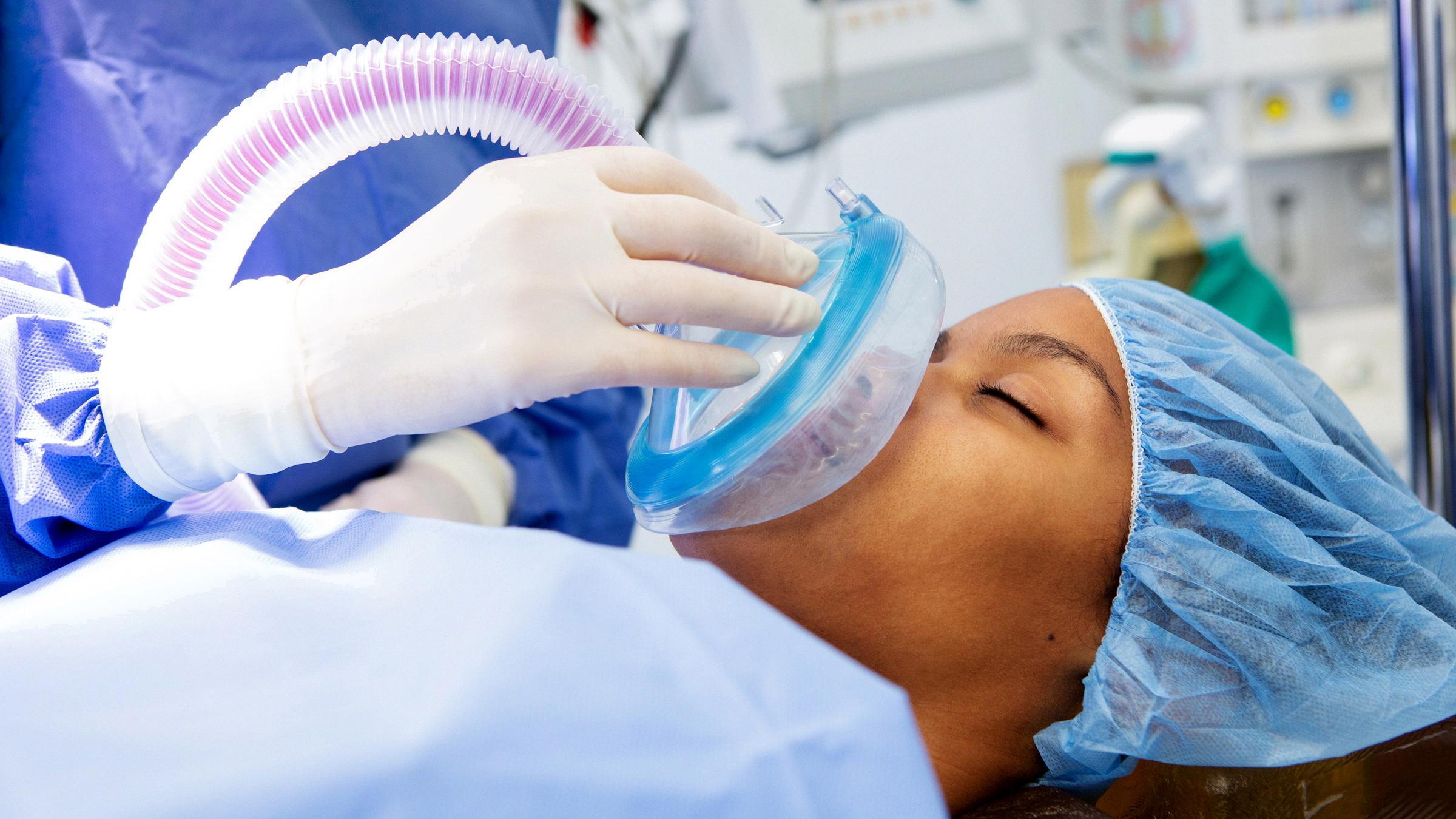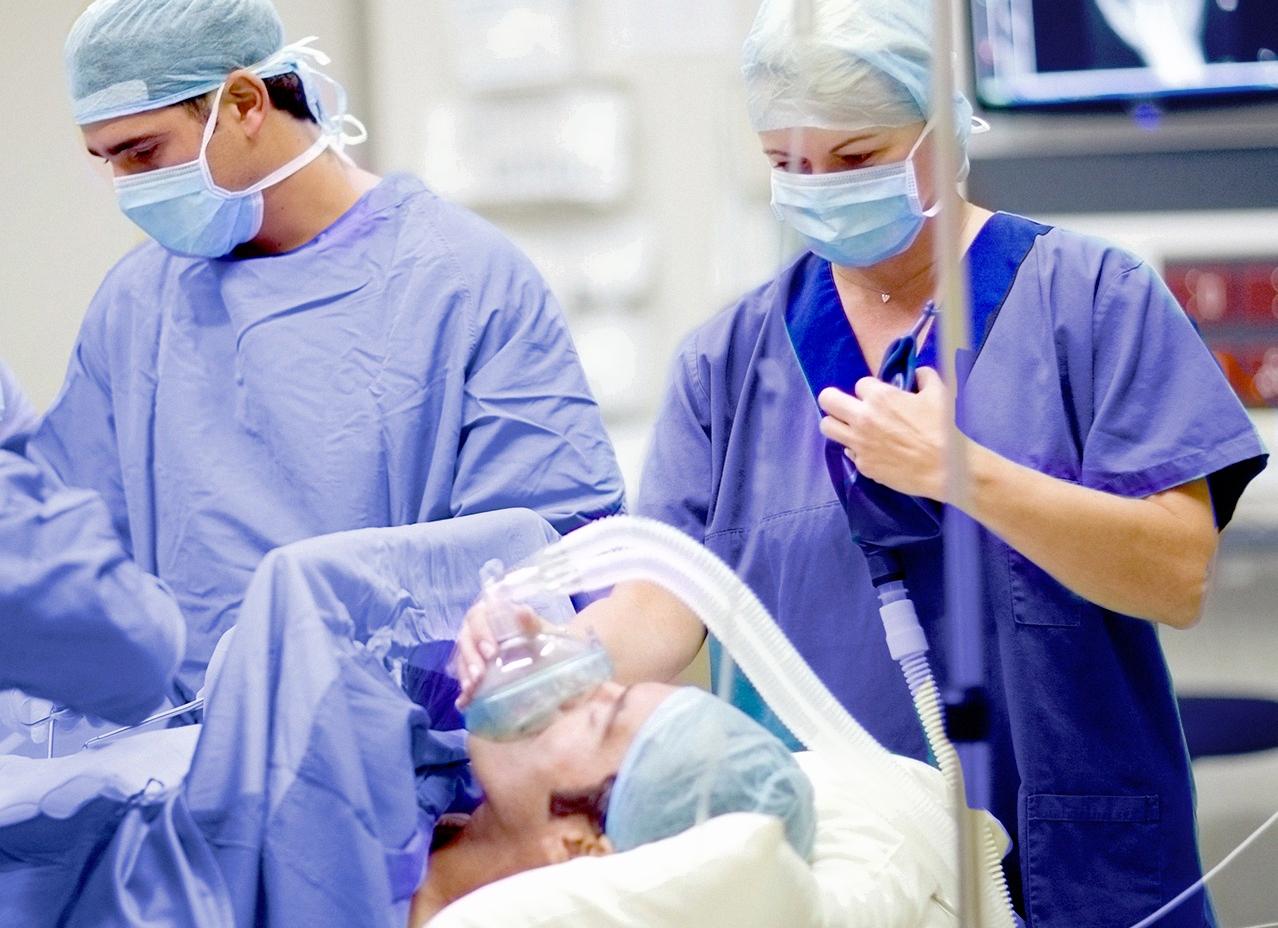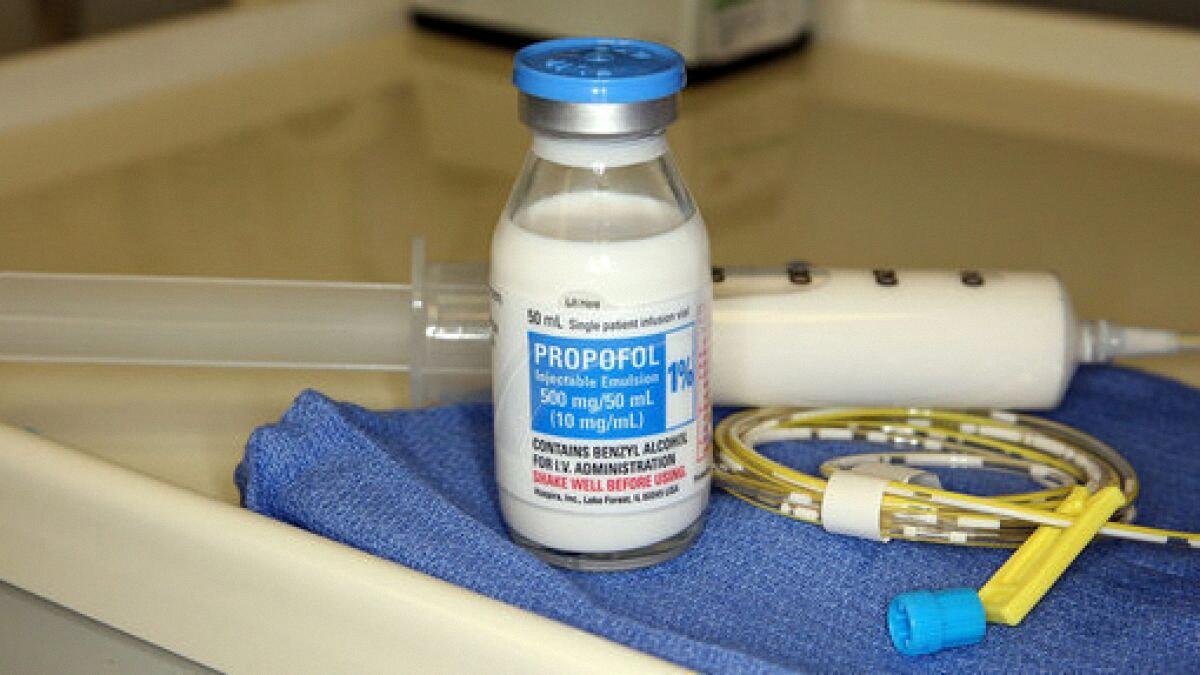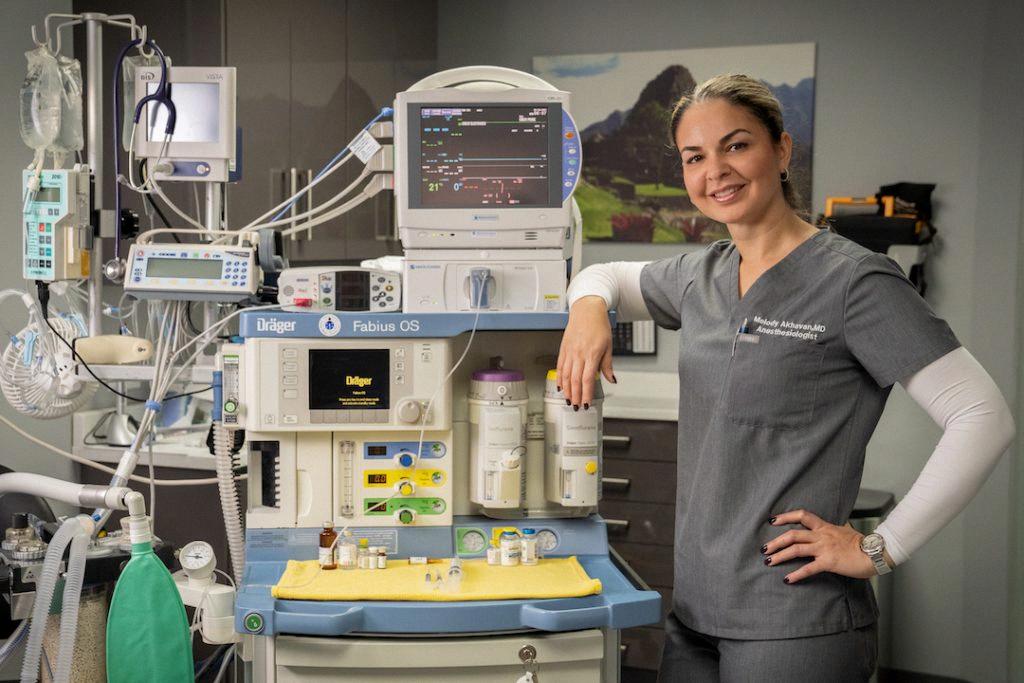Anesthesiologists are highly trained medical professionals who specialize in administering and monitoring anesthetics during surgical procedures. They are responsible for ensuring that patients remain safe and comfortable before, during, and after a procedure. Anesthesiologists work closely with surgeons, nurses, and other medical personnel to ensure that the patient receives the best care possible.
When administered correctly, anesthesia can be incredibly safe. In fact, the American Society of Anesthesiologists (ASA) reports that serious complications from anesthesia occur in less than one out of every 1,000 cases. Additionally, deaths related to anesthesia errors are very rare–less than 1 in 13,176 cases according to one study.
That said, an anesthesiologist can kill you if they make a mistake or if something goes wrong during a procedure. For example, if an anesthesiologist administers too much medication or fails to properly monitor the patient’s vital signs during surgery then there is a risk of death due to overdose or hypoxia (lack of oxygen). In addition to potential overdoses or hypoxia from improper administration of anesthesia there is also the risk of nerve injury secondary to body positioning as well as allergic reactions and malignant hyperthermia.
In conclusion, while an anesthesiologist can potentially kill you if they make a mistake it is important to note that when administered correctly anesthesia is incredibly safe and serious complications are rare. It is also important to remember that anesthesiologists are highly trained medical professionals who take their responsibility seriously and strive to provide the best care possibe for their patients.
Causes of Death Due to Anesthesia
Anaesthesia related deaths are caused by a range of factors, including circulatory failure due to hypovolaemia in combination with overdosage of anaesthetic agents such as thiopentone, opioids, benzodiazepines or regional anaesthesia; hypoxia and hypoventilation after for instance undetected oesophageal intubation, difficult airway management or inadequate ventilation; aspiration of gastric contents; reaction to muscle relaxant drugs; and cardiac arrhythmias. Other potential caues include malignant hyperthermia, drug allergy and/or anaphylaxis. In addition, there is the possibility of human error resulting from poor judgement or technique during the procedure. To minimise the risk of death from anaesthesia, it is important for the anaesthetist to assess the patient thoroughly before administering any drugs and to monitor their condition closely throughout the procedure.

Source: goodrx.com
Risks of Anesthesiology
Anesthesiologists are highly trained medical professionals whose primary responsibility is to ensure the safety and comfort of patients during surgery. However, like any medical procedure, there are some risks associated with the use of anesthesia. These risks include, but are not limited to:
1. Airway obstruction or difficulty breathing: The risk of airway obstruction or difficulty breathing can arise due to improper positioning of the patient on the operating table, incorrect placement of an endotracheal tube or other airway device, or from an allergic reaction to the anesthetic drugs used.
2. Nerve injury: Nerve injury can occur due to pressure from positioning on hard surfaces for extended periods of time, or from a direct injury caused by an insertion of a needle or other instrument during regional anesthesia (i.e., epidural block).
3. Anesthesiologist awareness: Though rare, it is possible for a patient to remain conscious during general anesthesia, potentially leading to psychological trauma and distress if not immediately recognized and managed by the anesthesiologist.
4. Infection: Infection can occur if a clean environment is not maintained throughout the procedure and aftercare, as well as if proper sterilization techniques are not followed when inserting any tubes or needles into the body.
5. Cardiovascular complications: Complications such as cardiac arrest, myocardial infarction (heart attack), arrhythmias (abnormal heart rhythms), stroke, and even death can result from complications arising during general anesthesia due to canges that occur in blood pressure and heart rate in response to certain drugs used during the procedure.
The Impact of Anesthesiologists on Mortality Rates
Anesthesiologists do not “kill” any people in a given year. In fact, they are responsible for keeping patients safe and comfortable during surgery. According to the American Society of Anesthesiologists, there were 184,472 surgeries performed in the United States in 2018. Out of those surgeries, only 14 deaths were related to anesthesia errors—a rate of 1 death per 13,176 cases. This is an incredibly small fraction and shows that anesthesiologists are highly skilled professionals who take great care to ensure patient safety.
Risk of Anesthesia-Related Deaths
Anesthesia-related deaths are incredibly rare in modern times. In the 1960s and 1970s, the average rate was one in every 10,000 or 20,000 patients, but now it is much lower at one in every 200,000 patients. This significant decline is largely due to advances in medical technology and improved safety protocols for administering anesthesia.
Can Anesthesia Cause Cardiac Arrest?
No, anesthesia does not directly stop your heart. Anesthesia is a medication given to patients to help them sleep through a surgical procedure. It works by depressing your central nervous system, wich slows down the body’s vital functions, including your heart rate and breathing. The anesthesiologist will monitor your vital signs throughout surgery to ensure they are within a safe range and can adjust the amount of anesthesia as needed. While it is possible for anesthetic drugs to cause complications with the heart, this is rare and typically occurs when too much medication has been given or if the patient has an underlying cardiac condition.

Source: shacpc.com
Consequences of Stopping Breathing During Anesthesia
If you stop breathing during anesthesia, you are at risk for anoxia or hypoxia. Anoxia is a complete lack of oxygen to the brain, and hypoxia is a partial lack of oxygen. If the oxygen deprivation is severe, it can cause serious damage to the brain and other organs and can even be fatal. To avoid this, your healthcare team will monitor your breathing and oxygen levels closely during anesthesia. In case of an emergency, they may be able to provide supplemental oxygen or administer medications that stimulate respiration.
Consequences of Anesthesiologist Mistakes
If an anesthesiologist makes a mistake, there may be serious consequences for the patient. In extreme cases, mistakes made during or after the administration of anesthesia can result in injury or even death. In such cases, the patient or their family may have grounds to pursue a medical malpractice lawsuit against the anesthesiologist and the hospital or medical facility where the error occurred.
A medical malpractice case begins with filing a claim with the court. This claim must include details of what happened, when it happened, and how it caused harm to the patient. The claim is then reviewed by a judge or jury to determine if there is sufficient evidence that negligence occurred. If so, they will decide if compensation sould be awarded to the victim based on their losses due to the mistake. Compensation could include medical bills, lost wages, and pain and suffering damages.
Vomiting During Anesthesia: What to Expect
If you throw up while under anesthesia, there is a risk of aspiration. This occurs when vomit is aspirated or breathed into the lungs, rather than being expelled from the stomach. Aspiration can lead to a dangerous condition called aspiration pneumonia, in which the lungs become infected with bacteria from the vomit. Aspiration pneumonia can cause serious complications, such as difficulty breathing and an inability to get enough oxygen. It is important to tell your anesthesiologist if you feel like you may vomit during surgery as they can take steps to reduce the risk.
Do Anesthesiologists Face a High Risk of Being Sued?
The answer to this question is yes, anesthesiologists often get sued. According to a Medscape survey, 62 percent of male anesthesiologists and 42 percent of female anesthesiologists have faced a malpractice suit at some point in their careers. This is often the case even when there are other co-defendants involved in the suit. It is important for anesthesiologists to be aware of the risks associated with their profession and to take appropriate steps to protect themselves against potential lawsuits.

Source: latimes.com
Reasons Why Anesthesia Should Not Be Feared
Anesthesia is one of the most important components of modern medical care and is a safe and effective way to make sure that procedures are carried out without pain or distress. The risk associated with general anesthesia is extremely low and many patients come through the procedure without any complications. For example, for most cosmetic surgery procedures, the mortality rate associated with general anesthesia is less than 0.2%.
The anesthesiologist administering the procedure will be highly trained and experienced in administering anesthesia safely and efficiently. Before any procedure involving general anesthesia, your anesthesiologist will assess your health to ensure that you are a good candidate for general anesthesia. During the procedure, they will monitor your vital signs closely to ensure that everything is going smoothly. After the procedure, they will closely monitor you until you are awake and alert enough to leave their care.
In addition to having a highly-qualified professional administer the anesthesia, there are several steps you can take before undergoing general anesthesia to help reduce your risk of complications. These include avoiding certain medications prior to your procedure and providing a detailed medical history so that your anesthesiologist can assess any risk factors before administering the anesthesia.
Overall, it is important to remember that general anesthesia is very safe when administered by an experienced anesthesiologist and when all safety precautions are taken beforehand.
The Fear of Anesthesia
The fear of anesthesia is known as anaesthesiophobia. It is a type of tomophobia, or fear of medical procedures and medical interventions. People with anaesthesiophobia experience anxiety when they think about receiving anesthesia during a medical procedure. Symptoms can range from mild to severe, and include feelings of dread, panic attacks, difficulty breathing, nausea, sweating and increased heart rate. People with this phobia may avoid necessary medical procedures out of fear of the anesthesia itself. Treatment for this phobia may include cognitive-behavioral therapy (CBT), desensitization, hypnotherapy and relaxation techniques.
Can Anesthesia Induce a Coma?
Yes, anesthesia can indeed put you into a coma. During general anesthesia, an anesthesiologist uses a combination of drugs to induce a reversible, drug-induced coma. The drugs used to induce general anesthesia can affect both the parts of the brain that control consciousness and the parts that control movement. As a result, you become unconscious and unable to feel pain or move your body while under anesthesia. Although it is referred to as “sleep” by anesthesiologists in order to avoid alarming patients, the process of general anesthesia is technically considered a drug-induced coma.
The Effects of Anesthesia on Waking Up
Yes, it is possible to not wake up from anesthesia. While anesthesia is generally very safe, there is a small risk that a patient may not regain consciousness after surgery. This risk is higher in elderly people, with reports indicating that the incidence of not waking up after general anesthesia ranges from 1 in 10,000 to 1 in 20,000 patients over the age of 65. In order to reduce this risk, researchers are trying to gain more insight into how the brain wakes up from anesthesia so that they can develop strategies to minimize the chances of it happening.

Source: snoozedentistry.net
Exploring the Closeness of Anesthesia to Death
No, anesthesia is not the closest thing to death. Anesthesia is a medical technique used to induce a temporary state of unconsciousness and immobility, either for the purpose of surgical procedures or for pain relief. During anesthesia, vital signs such as breathing, heart rate, and blood pressure are monitored and controlled by an anesthesiologist. This means that a patient is never completely “dead,” as would be necessary for a true death experience.
Anesthesia does, however, provide us with a unique near-death experience that is not available in any other situation. This can be seen in the effects of anesthesia on the brain: during anesthesia, brain activity slows down drastically and can even stop for short periods of time. This gives us the sensation of beig on the threshold between life and death – which can be both frightening and calming at the same time.
In addition to providing us with this unique near-death experience, anesthesia also serves as a reminder of our own mortality and fragility as human beings. During anesthesia, we are vulnerable and entirely dependent on others for our safety; this forces us to confront our own mortality in ways that we normally would not have to do so in everyday life.
Anesthesia may not be the closest thing to death but it does provide us with an invaluable experience that reminds us of our place in the universe – something both sobering and inspiring at once.
The Risk of Brain Death Due to Anesthesia
Yes, it is possible for anesthesia to cause brain death in some cases. Anesthesia is a complex medical procedure that carries risks and can lead to serious complications if not administered properly. While rare, anesthesia errors can result in brain damage or death due to a lack of oxygen, insufficient medication administration, or an adverse reaction to the anesthesia itself.
The risk of brain death resulting from anesthesia is highest in those with existing medical conditions such as heart disease or respiratory problems. In addition, elderly patients and those with impaired cognitive function may be at greater risk of suffering from brain death due to anesthesia errors.
It is important for patients to be aware of the potential risks associated with undergoing anesthesia and to discuss thee risks with their doctor prior to any procedure. Additionally, it is essential that all medical professionals involved in administering anesthesia follow the correct protocols and adhere to safety standards at all times in order to reduce the likelihood of errors and complications.
Conclusion
Overall, anesthesiologists play a critical role in the safety and success of surgical procedures. Through careful planning and monitoring, they are able to ensure that patients remain comfortable and safe during their time under anesthesia. While rare, there are potential risks associated with anesthesia that can lead to death or other serious complications. Therefore, it is important for anesthesiologists to take all necessary precautions in order to ensure the best possible outcome for their patients.
